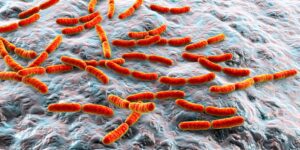 In recent years, the intricate relationship between the gut microbiome and various health conditions has become a focal point for scientific inquiry. One particularly intriguing area of research is the connection between the gut microbiome and autism spectrum disorder (ASD). A study published in Nature Microbiology has shed new light on this relationship, offering promising insights that could pave the way for innovative treatments and interventions for children with autism.
In recent years, the intricate relationship between the gut microbiome and various health conditions has become a focal point for scientific inquiry. One particularly intriguing area of research is the connection between the gut microbiome and autism spectrum disorder (ASD). A study published in Nature Microbiology has shed new light on this relationship, offering promising insights that could pave the way for innovative treatments and interventions for children with autism.
Understanding the Gut Microbiome
The gut microbiome consists of trillions of microorganisms, including bacteria, viruses, fungi, and other microbes, that reside in our digestive tract. These microbes play crucial roles in digesting food, producing vitamins, and protecting against pathogens. More recently, research has indicated that the gut microbiome also influences brain function and behavior, a concept often referred to as the “gut-brain axis.”
Autism Spectrum Disorder (ASD)
ASD is a complex neurodevelopmental disorder that presents challenges in social interaction, communication, and repetitive behaviors. The exact causes of autism are still not fully understood, but researchers believe it is a result of a combination of genetic and environmental factors. Recent studies have indicated that gut health may play a crucial role in the development and severity of ASD symptoms.
Key Findings from the Study
The study published in Nature Microbiology investigated the gut microbiome and autism by comparing the profiles of children with ASD to neurotypical children. The researchers found distinct differences in the composition and function of the gut microbiota between the two groups. Here are some of the key findings:
- Microbial Diversity: Children with ASD had lower microbial diversity in their gut microbiomes than neurotypical children. Lower diversity is often associated with poorer health outcomes and is common in various diseases.
- Specific Bacteria: The study identified several bacterial species that were significantly more or less abundant in children with ASD. For instance, certain strains of Bacteroides and Prevotella were found to be less prevalent, while Clostridia and Desulfovibrio were more abundant in the ASD group.
- Metabolic Pathways: Notably, there were differences observed in the metabolic pathways of the gut microbiota. The researchers observed changes in the production of short-chain fatty acids (SCFAs), which play a crucial role in maintaining gut health and have been linked to brain function and behavior.
- Immune System Interaction: The study highlighted a potential link between the gut microbiome and the immune system in children with ASD. Dysbiosis (imbalance in the microbiome) was associated with increased gut permeability, often referred to as “leaky gut,” which could lead to immune dysregulation and inflammation.
Implications for Treatment
The findings from this study offer several potential avenues for developing new treatments and interventions for ASD:
- Probiotics and Prebiotics: One of the most direct applications of this research is the use of probiotics (beneficial bacteria) and prebiotics (compounds that promote the growth of beneficial bacteria) to restore a healthy gut microbiome balance in children with ASD. Initial studies indicate potential in this field, but further research is required to identify the optimal strains and formulations.
- Dietary Interventions: Dietary changes can significantly influence the composition of the gut microbiome. Diets rich in fiber, fruits, and vegetables can promote the growth of beneficial bacteria and improve gut health. Specific dietary interventions tailored to the needs of children with ASD could potentially mitigate some of their symptoms.
- Fecal Microbiota Transplantation (FMT): FMT involves transplanting stool from a healthy donor into the gut of a recipient to restore a balanced microbiome. Although still experimental, early studies of FMT in children with ASD have shown promising results, with some children experiencing improvements in both gut health and behavioral symptoms.
- Personalized Medicine: Understanding the specific microbiome profiles associated with ASD can lead to more personalized treatments. By identifying which bacterial species and metabolic pathways are most disrupted in each individual, clinicians can tailor interventions to target those specific imbalances.
Future Research Directions
While the study published in Nature Microbiology provides valuable insights, it also raises many questions and underscores the need for further research. Future studies should focus on:
- Longitudinal Studies: Following children with ASD over time to understand how their gut microbiome evolves and how changes correlate with symptoms and treatment responses.
- Mechanistic Studies: Investigating the exact mechanisms by which gut microbes influence brain function and behavior, including the role of microbial metabolites and the interaction between the gut and the immune system.
- Intervention Trials: Conducting rigorous clinical trials to test the efficacy and safety of microbiome-based therapies, such as probiotics, prebiotics, and FMT, in children with ASD.
- Genetic and Environmental Interactions: Exploring how genetic predispositions and environmental factors, such as diet and antibiotics, interact to shape the gut microbiome and influence ASD development.
Conclusion
The study published in Nature Microbiology marks a significant step forward in our understanding of the gut-brain axis and its role in autism spectrum disorder. By revealing distinct differences in the gut microbiome of children with ASD, this research opens the door to novel treatment strategies that could improve the quality of life for affected individuals. As we continue to unravel the complexities of the gut microbiome and autism, there is hope that we can develop more effective and personalized approaches to managing and potentially mitigating the symptoms of autism.

